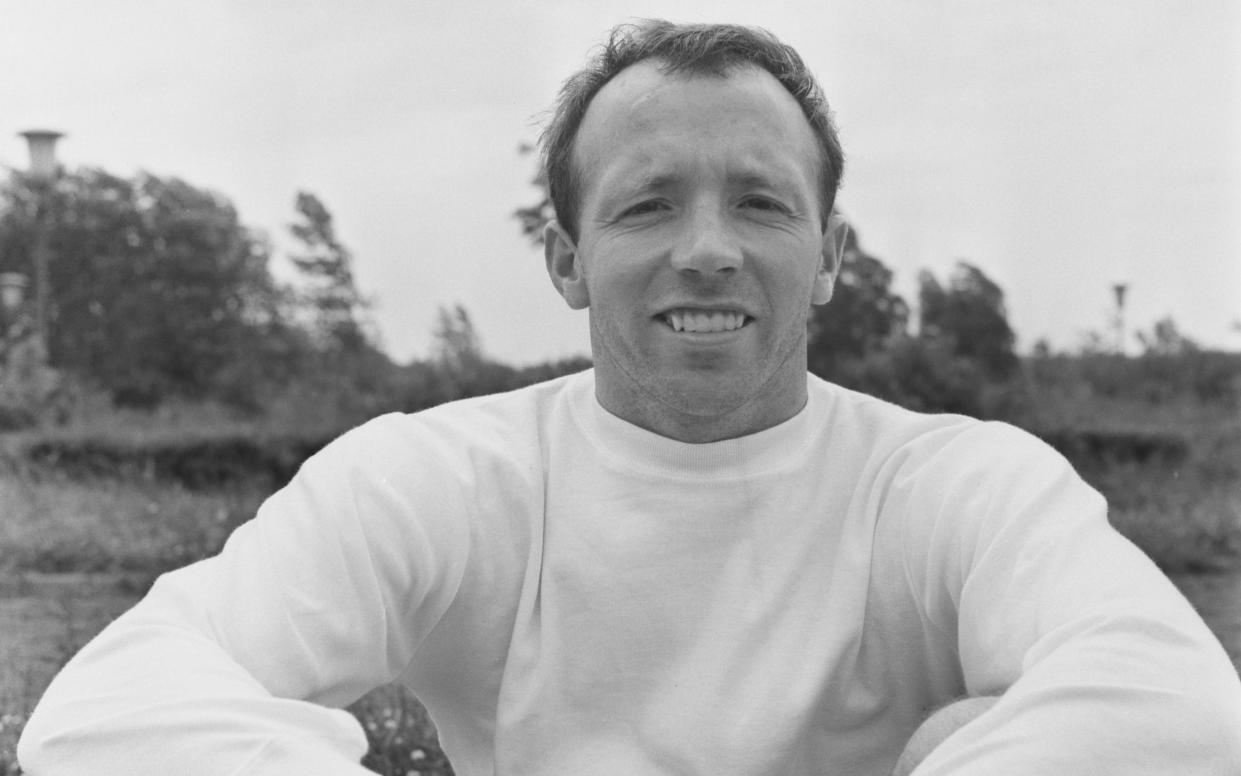Passing of Nobby Stiles reinforces calls for neurological disease in football to be investigated as an industrial illness

The passing of Nobby Stiles, who is the fourth member of England’s 1966 World Cup-winning team to die after being diagnosed with dementia, will reinforce calls for neurological disease in professional football to be investigated as an industrial illness.
Stiles, who was 78, had been living with dementia since his early sixties and his family are among those who have repeatedly questioned football’s inaction in the face of mounting evidence that it has a serious problem among its former players.
John Stiles, Nobby’s son, Telegraph Sport as far back as 2016 that neurological disease among former players seemed “almost to be of epidemic proportion”, while Nobby’s granddaughter, Caitlin Stiles, graduated from Newcastle University this summer after writing a law dissertation entitled: ‘The increased risk of neurodegenerative diseases in UK professional football - should football governing bodies respond?’
The Telegraph launched its campaign for research in 2016 and, last year, a study led by Dr Willie Stewart at the University of Glasgow delivered an emphatic answer. Former professional footballers were 3.5 times more likely to die of a neurological disease, including a five-fold increased risk of Alzheimer’s, a four-fold rise in motor neurone disease and a doubled risk of Parkinson’s.
Football’s subsequent inaction, however, is causing increasing anger and frustration among campaigners and families of former players, especially in the face of further evidence.
From the 1966 team alone, Stiles, Martin Peters, Jack Charlton and Ray Wilson have all died since 2018 after living with dementia and, at a landmark inquest in Ruthin earlier this month, the death of the former Wales international Alan Jarvis was registered as ‘industrial disease’.

The precise cause of dementia cannot be ascertained while former players are still living, but the Jarvis family donated Alan’s brain and it was from this examination that coroner John Gittens could base his verdict. “It is my view that his previous occupation contributed to the degeneration of his neurological function - I think sadly there maybe others in the future,” said Gittens.
Dawn Astle, whose father Jeff was the first footballer to officially die from ‘industrial disease’ as a result of his job playing professional football, has, with Judith Gates, the wife of former Middlesbrough defender Bill, now asked the Industrial Illness Advisory Panel to formally consider dementia in football as an industrial disease.
The panel will call Dr Stewart as an expert witness before deciding whether a threshold of a doubled risk of suffering a serious disease as a result of your occupation has been met.
Having neurodegenerative disease formally recognised as an industrial illness would allow former players to make a claim for Industrial Injuries Disablement Benefit, as is the case with more than 70 other diseases which are included in the scheme. It would also significantly increase the pressure on governing bodies to mitigate risk and provide greater financial assistance to affected players and families.
Gates is also campaigning for sport to take a new approach to research and has been backed in that aim by members of the Stiles family. In a joint statement Caitlin and Rob, who is another of Nobby’s sons, said: “We must protect the welfare of players. There are too many vested interests in the game. We need independent research in order to protect the players of the future. We must promote education.”
Astle has been contacted by the families of hundreds of former players with dementia since her dad’s death at the age of 59 and senses no reduction in new cases as the years steadily pass.
New heading guidelines, which recommend no heading in training among primary school children, were released earlier this year by the Football Association but Astle has also called for restrictions in adult football. She also wants football to provide comprehensive care support for families of affected players. Dr Stewart has urged football to follow rugby in introducing temporary concussions substitutions for a longer on-field assessment of head injuries.
According to the Alzheimer’s Society, only one in 75 adult males between the ages of 65 and 69 is living with dementia. Of the eight outfield players who reached that age among England’s 1966 World Cup winning team, three were already living with the condition.


